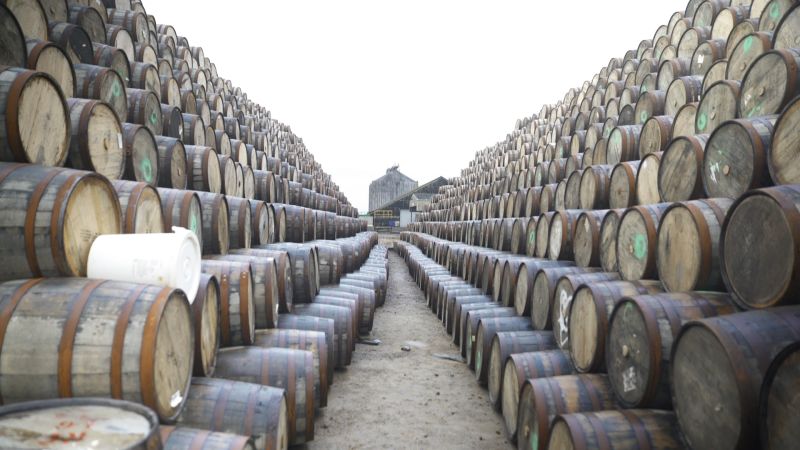The Scotch whisky industry, known for its rich heritage and craftsmanship, is also a notable contributor to carbon dioxide (CO2) emissions. In the process of distillation, the production of this iconic spirit generates unavoidable greenhouse gases, raising concerns about its environmental impact. Recognizing the need for sustainable practices, innovators in the field, such as the company known as The Carbon Removers, are taking pioneering steps to address the challenge. Their mission focuses on capturing high-grade CO2 produced during whisky distillation and repurposing it into useful materials for the construction industry. In doing so, they not only reduce emissions but also find a way to sequester CO2 for extended periods, with the potential to lock it away for up to a millennium.
The pressing issue of climate change necessitates action across all industries, including traditional sectors like whisky-making. With Scotland being synonymous with Scotch whisky, the environmental implications of this centuries-old industry cannot be ignored. Distilleries are often located in picturesque landscapes, but their operational processes can contribute to the carbon footprint of the region. As the whisky industry evolves, it is essential for distillers to adopt more sustainable practices that minimize their environmental footprint while continuing to produce high-quality spirits.
The innovative work being done by The Carbon Removers represents a significant advancement in the intersection of carbon capture and construction materials. Their technology is designed specifically to extract high-grade CO2 that would otherwise be released into the atmosphere from the whisky-making process. By capturing this gas, The Carbon Removers take on the dual challenge of mitigating climate change impacts while creating opportunities for sustainable development in the construction sector.
The repurposing of captured CO2 into construction materials is a groundbreaking strategy that aligns with global initiatives focused on carbon neutrality. Through advanced techniques, the CO2 can be transformed into substances such as concrete or aggregates, reinforcing the importance of carbon utilization in modern building practices. This not only contributes to a circular economy but also aids in reducing the reliance on fossil fuels and other non-renewable resources in construction. By locking away CO2 for extended periods, these materials provide a long-term solution to storage, effectively isolating the gas from the atmosphere and minimizing its impact on global warming.
Moreover, the successful implementation of such technologies within the whisky industry serves as an inspiring model for other sectors facing similar challenges concerning carbon emissions. The initiative by The Carbon Removers illustrates how traditional industries can adapt to contemporary environmental demands while maintaining their cultural significance and economic viability. By adopting innovative practices, distilleries can continue to thrive in a market increasingly concerned with sustainability, attracting eco-conscious consumers and investors alike.
The collaboration between whisky producers and carbon capture technologists can also lead to a new wave of research and development. Such partnerships create an encouraging environment for innovation, where industry experts can explore various methods of reducing waste and integrating sustainability into their operations. As market dynamics shift towards responsible consumption, the intersection of the whisky industry and carbon removal technologies highlights a critical avenue for achieving environmental goals without sacrificing quality or tradition.
In conclusion, the Scotch whisky industry, facing the challenge of CO2 emissions, has a unique opportunity to collaborate with visionaries like The Carbon Removers. By pioneering methods to capture and repurpose CO2 into construction materials, they are making strides towards sustainability. This initiative not only helps to combat climate change but also sets a precedent for other industries grappling with similar issues. The journey toward a greener future is paved with innovative partnerships and a commitment to responsible practices—marking a significant evolution in the heritage of craft industries such as whisky-making.



